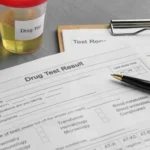7 Stages of Trauma Bonding
Learn the Definition, Effects, and How to Overcome It
Table of Contents
ToggleA trauma bond refers to a strong, unhealthy attachment that develops between an abuser and their victim. This bond does not form overnight. Instead, trauma bonding occurs in stages that manipulate the abused person over time, making it difficult to leave.
Like with the majority of abusive relationships, the slow development is part of what makes it hard to see that you’re in a bad situation until it worsens. The emotional manipulation progresses steadily; at the beginning, you might believe that the connection is, “too good to be true.”
If you’ve been in a trauma bonded relationship (or, if you’re in one right now), it’s not your fault. Icarus Wellness and Recovery provides trauma therapy for survivors of trauma-bonded relationships and other adverse situations.
7 Stages of Trauma Bonding
An abusive relationship doesn’t tend to start with overtly abusive behavior. In many instances, understanding trauma bonding and how the stages of trauma bonding help an abusive person take control over time is the first step toward breaking free.
Here’s how a trauma bond develops in 7 stages.
Stage One: Love Bombing
Love-bombing is a manipulation tactic. During the love-bombing stage, the abusive person uses grand displays of affection and flattery to gain your trust, get your guard down, and start to build an emotional attachment.
During this stage, being in the relationship will likely feel great. The person may be incredibly charming; you might feel like you’re walking on air, or as though you have met the love of your life.
Stage Two: Trust and Dependence
By stage two, the love-bombing seen in the first stage of the relationship has created a sense of trust and dependence. At this point, you’re invested in the relationship. During this stage, the person may test your faithfulness on purpose, though not always.
The main characteristic of this stage is the fact that, if you question the abuser’s intentions, they will guilt you for doing so. This is how they start to gain control over you.
Stage Three: Criticism and Devaluation
At first, your abuser may have complimented you. For example, in the love-bombing stage, you likely felt special; like you were appreciated and adored. At this stage, however, the abusive person will start to criticize your qualities.
They might make negative comments about your personality, looks, ability to be a good partner, or something else. This is done to make you feel insecure. You may attempt to gain their approval back.
Stage Four: Manipulation and Gaslighting
Now, the psychological abuse intensifies. The person has set the stage so that you don’t trust yourself or your intuition like you used to. They make you feel as though you are “crazy,” and if they show abusive behavior, they will turn it around so that it feels like it is your fault.
The abusive person will make you feel as though you are the problem in the relationship. It is common for an abusive partner to make you feel that, if you changed, the relationship would be perfect; like it was in the beginning.
Stage Five: Resignation and Giving Up
At this point, the victim’s self-esteem is likely at an all-time low. This can be true even if you began the relationship as a confident, self-assured person. At this stage, you’re emotionally exhausted – too exhausted to challenge the abuser.
At this point, you are likely aware that you’re in an abusive relationship. However, you may feel stuck or unable to break free. Financial, physical, or emotional abuse can compound how trapped you feel.
Stage Six: The Loss of Self Stage
Due to the cycle of abuse, victims often lose their sense of self. You will likely lack boundaries and fear upsetting the abusive partner. Most people feel far away from the person they were before the relationship by the time it reaches stage six.
At this point, the abusive person will have worn you down. Consistent emotional distress, stress, and feelings of depression are common. If you’re at this stage right now, please remember that there is hope.
Stage Seven: Emotional Addiction
In many cases, a trauma-bonded relationship is a cycle. The abusive person may alternate between showing affection or making it seem like they are attempting to repair the relationship to give you hope and causing emotional or physical harm.
This cycle leads to emotional addiction. The abused person continues to try to change themselves so that the relationship is “good” again. The abuser gives you just enough validation to keep you trapped.
Escaping this vicious cycle is possible.
Get Effective outpatient Rehab Options at Icarus IDAHO
Leaving an Emotionally Abusive Relationship
Your safety is the #1 priority. Depending on the situation, here are some steps you might take to get out of an emotionally abusive relationship.
- Make a safety plan. This may include packing a bag of essential items in case you need to leave quickly, arranging for a safe place to go, and saving money. The National Domestic Violence Hotline website can help you create a safety plan.
- Tell someone you trust what is going on. Reach out to a friend or family member who can provide emotional support and insight.
- Keep a record of the abuse. If applicable, you might include dates, times, and any bruises or injuries that result. This can be used as evidence if you decide to press charges.
- Look for a therapist who can help you overcome the emotional trauma of abuse.
- Seek medical attention if you have been injured.
- Get a restraining order if necessary.
Healing does not happen overnight. Contacting a treatment center like Icarus Wellness and Recovery for professional support is ideal. Our programs are thorough, incorporating group and individual therapy sessions for trauma survivors.
Trauma Bonding and Stockholm Syndrome
Sometimes, learning about Stockholm Syndrome can be helpful for those working to make sense of an abusive situation. Specifically, this may be the case if you have positive feelings toward an abuser and are confused as to why.
Stockholm syndrome is a condition that can develop in people who have been kidnapped, taken hostage, or are in an abusive situation. It’s characterized by a strong emotional bond between the victim and their captor, which might lead to outcomes like victims defending their captors.
There are many different factors that contribute to the development of Stockholm Syndrome. In some cases, it may be due to the captor showing unexpected acts of kindness towards the victim. In others, it might be due to the victim feeling like they have no other choice but to bond with their captor.
Regardless, having sympathy for your abuser does not mean that the abuse is your fault. It also does not make the abusive situation less serious.
Healing From Trauma Bonds
When you have been in an abusive relationship, or even a series of abusive relationships, it is often hard to pick up the pieces and move on. But, it is possible to heal. Here are some things that can help you recover after an abusive relationship.
Seek Social and Mental Health Support
Talk to friends, family, or a therapist who can help you work through your feelings. Identify the people in your life who will support and love you unconditionally. Nurture the relationships you have with those people. You might also seek out new, healthy friendships.
Some people find that support groups for survivors are helpful. A support group may meet in person, or it could meet online.
Consider working with a mental health professional at our center. Professionals offer guidance that will help you recover from your original trauma and the trauma of being in an abusive relationship in a way friends and family can’t.
Brush up on Self-Care Practices
First, take a look at whether your basic needs are being met. Are you sleeping enough? Are you eating regular meals? If not, it is important to build routines that help you get those needs met. It is easy to forget how much of a difference they make when self-care falls to the wayside.
Once your basic needs are met, add other modes of self-care. Physical activity, relaxation techniques, and taking time for your hobbies are some examples.
Challenge Your Negative Thoughts
It’s common to have negative thoughts after being in an abusive relationship. You may feel unsure of yourself, like you can’t heal, or as though you are to blame for what happened. But, these thoughts are not true.
Identify negative thoughts when they emerge, and take the time to challenge them. Cognitive reframing, often taught in cognitive behavioral therapy (CBT), can help you do this.
We use therapy methods like trauma-focused CBT to help victims of abuse rebuild their self-esteem.
Build a New Life for Yourself
After an abusive relationship, it is crucial to rebuild and think about what you want for your life as you move forward. Specifically, focus on building a life that’s safe and healthy.
Depending on who you are, this could mean moving to a new location, getting a new job, going back to school, or finding a new activity to get involved in. Some people will want to make more changes than others.
In therapy, we help survivors explore what they want in life moving forward and how to achieve those goals.
Think About What Makes a Healthy Relationship
Many abuse survivors have a pattern of unhealthy romantic relationships. For example, child abuse survivors are more likely to become victims of domestic violence.
This is not your fault. Trouble trusting yourself and other impacts, like low-self-esteem, from having been in an abusive situation in the past can stick with you. Whether in childhood or in adulthood, these effects can make you more vulnerable to toxic intimate relationships.
For this reason, really taking the time to think about what you want in a romantic partnership (and thinking about what a healthy one looks like) can be essential. This is a common topic discussed in therapy for abuse survivors.
The Importance of Specialized Treatment for Complex Trauma
Complex trauma refers to repeated or ongoing traumatic events, such as intimate partner violence or prolonged childhood abuse. People who have been through complex trauma are at risk of various mental and physical health challenges.
For example, those who have complex post-traumatic stress disorder (C-PTSD) face additional (and more severe) symptoms compared to others with PTSD. While all survivors can benefit from therapy, mental health conditions are often best treated by professionals who specialize in them.
As a survivor, it can be critical to look for a treatment provider who is trauma-informed. Our centers provide comprehensive care for complex trauma and the conditions associated with it.
Up To 100% of Rehab Costs Covered By Insurance
Call Icarus Wellness and Recovery to Break Free From the Effects of Trauma Bonds
Icarus Wellness and Recovery is a respected substance abuse and mental health treatment center in Idaho. We’re here to help you make sense of the stages of trauma bonding and rebuild after the fact.
If you have left an abusive relationship and need support for the after-effects, get in touch with our team today. We understand the deep emotional and psychological implications a trauma-bonded relationship can have.
Our staff members are here to help you untangle and make sense of past trauma bonds, heal, and build healthy relationship skills for the future. Call our admissions line to learn more.
FAQs About the 7 Stages of Trauma Bonding
What are the risk factors for traumatic bonding?
Childhood maltreatment is one of the biggest risk factors for traumatic bonding. Higher levels of insecure attachment are also a risk factor.
How do you prevent trauma bonding?
Learning about trauma bonds and how they form matters because it can help you detect the signs early.
How long does it take to recover from trauma bonding?
There is no set timeline for trauma recovery. Everyone healing from a trauma-bonding cycle is unique. What we do know is that healing is possible. As you move through therapy, you will make progress and continue setting new goals as you do so.
How do I know if I am in a trauma bond?
If you recognize the 7 stages of trauma bonding and feel that they occurred in your relationship, it is likely that you are or have been in a trauma bond. Talking with a therapist can help you make sense of what happened and heal from the effects.
What does it mean to be trauma bonded to someone?
The term trauma-bonding refers to the relationship an abuse victim develops with their abuser. It is characterized by feelings of attachment with the abuser and an abuse cycle where alternating positive reinforcement and criticism are used to keep an individual in the relationship.
Why is a trauma bond so hard to break?
In trauma-bonded relationships, the abusive partner uses manipulation to alter the victim’s sense of reality, as well as their self-esteem. The manipulation can make it hard to realize that there is a problem in the relationship, which is part of why it can be so hard to break.
How long does a trauma bond last?
How long a trauma bond lasts can vary widely. Many factors, such as the severity of the abuse and the resources available to the person affected, can play a role in how long it takes to break trauma bonds.
References
- The 7 stages of trauma bonding. Attachment Project. (2024, May 24).
- Plan for safety. The Hotline. (2023b, December 12).
- Stockholm Syndrome: What it is, symptoms & how to treat. Cleveland Clinic. (2025d, June 2).
- Huecker, M. R. (2023, April 9). Domestic violence. StatPearls [Internet].
- Complex PTSD. Cleveland Clinic. (2025a, July 15).
- H;, S. E. R. J. (n.d.). Risk factors for traumatic bonding and associations with PTSD symptoms: A moderated mediation. Child abuse & neglect.
Recent Post
-
What Time Can You Buy Alcohol in Idaho?
-
15 Recovery Journal Prompts (You Can Really Use!)
-
Is Kratom Legal in Idaho?
-
 Our REBT Therapy Worksheets and PDF
Our REBT Therapy Worksheets and PDF -
Our IFS Therapy Worksheets and PDF Resources
-
What Happens If You Fail A Drug Test on Probation in Idaho or Nationwide?
-
Can You Check Yourself Out of Rehab?
-
How Long Does Alcohol Stay in Saliva?
-
Does Medicaid Cover Rehab in Idaho?
-
Our Cognitive Processing Therapy Worksheets to Support Recovery
-
What Is The Fentanyl Fold?
-
Can BPD Cause Hallucinations and Psychosis?
-
Does Tricare Cover Dual-Diagnosis Treatment?
-
Can You Have BPD and Bipolar Disorder?
-
How Long Does Alcohol-Induced Depression Last?


















